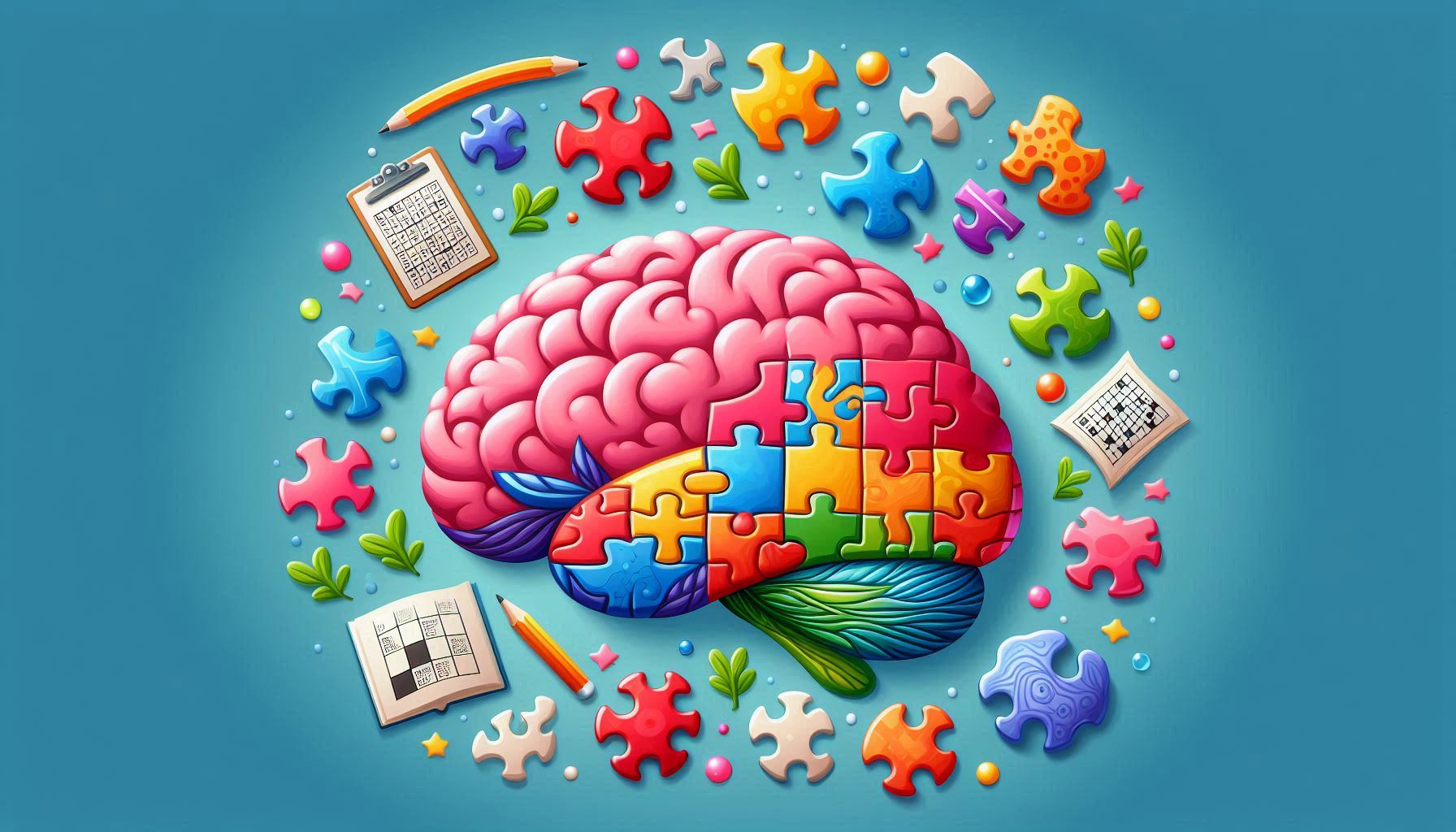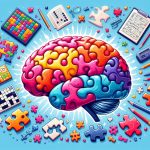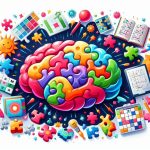
Introduction
In a world dominated by screens and digital entertainment, puzzle games have emerged as more than just a way to pass the time. From classic crosswords to modern apps like Brain Age and Lumosity, these games are celebrated for their potential to sharpen the mind. But are puzzle games truly good for your brain? This article dives into the cognitive science behind puzzle games, their proven benefits, and how to harness their power for long-term brain health.
The Science Behind Puzzle Games and Brain Health
Research consistently highlights the link between mental stimulation and cognitive resilience. Puzzle games engage multiple brain regions, including the prefrontal cortex (responsible for decision-making) and the hippocampus (critical for memory). A 2019 study published in Frontiers in Aging Neuroscience found that adults who regularly played puzzles showed improved spatial reasoning and delayed cognitive decline.
Neurologists liken puzzle-solving to a “workout” for the brain. Just as physical exercise strengthens muscles, mental challenges forge stronger neural connections. This process, called neuroplasticity, allows the brain to adapt and rewire itself, enhancing problem-solving skills and creativity.
Top 5 Cognitive Benefits of Puzzle Games
1. Enhanced Memory and Recall
Puzzle games require players to remember patterns, sequences, and rules. For example, Sudoku challenges users to track numbers across grids, exercising short-term memory. A 2021 study by the University of Exeter found that adults over 50 who played crossword puzzles had brain function equivalent to people 10 years younger.
2. Improved Problem-Solving Skills
Games like Portal or The Witness demand strategic planning and logical reasoning. These tasks activate the brain’s frontal lobe, fostering critical thinking. Over time, players develop a “growth mindset,” becoming adept at tackling real-world challenges.
3. Increased Mental Speed and Attention
Fast-paced puzzles, such as Tetris or Candy Crush, enhance processing speed and hand-eye coordination. A report in Nature revealed that action-puzzle gamers make decisions 25% faster than non-gamers without sacrificing accuracy.
4. Stress Reduction and Mood Boost
Puzzles trigger the release of dopamine, the “feel-good” neurotransmitter. Completing a challenging level or solving a riddle provides a sense of accomplishment, reducing cortisol levels. Jigsaw puzzles, in particular, are meditative and linked to lower anxiety.
5. Social Connection and Collaboration
Multiplayer games like Among Us or escape rooms encourage teamwork and communication. Social interaction itself is a cognitive booster, as noted by the Harvard School of Public Health, which ties social engagement to reduced dementia risk.
Types of Puzzle Games That Boost Brain Power
Not all puzzles are created equal. Here’s a breakdown of game categories and their unique benefits:
-
Logic Puzzles (Sudoku, Chess): Sharpen analytical thinking and pattern recognition.
-
Word Games (Crosswords, Scrabble): Expand vocabulary and improve verbal fluency.
-
Spatial Puzzles (Jigsaws, Tetris): Enhance visual-spatial reasoning and memory.
-
Digital Brain Trainers (Lumosity, Peak): Offer personalized cognitive workouts targeting memory, attention, and flexibility.
-
Escape Rooms and Adventure Games (Mist, The Room): Combine storytelling with complex problem-solving.
Debunking Myths: Can Puzzle Games Prevent Dementia?
While puzzle games aren’t a cure-all, studies suggest they contribute to cognitive reserve—the brain’s ability to improvise around damage. The Alzheimer’s Association notes that lifelong mental stimulation may delay symptoms of dementia by up to 5 years. However, experts emphasize that puzzles should complement, not replace, physical exercise, a balanced diet, and social engagement.
How to Incorporate Puzzle Games Into Your Routine
-
Start Small: Dedicate 15–20 minutes daily to apps like Elevate or New York Times Crossword.
-
Mix It Up: Rotate between puzzle types to challenge different brain areas.
-
Play Socially: Join a trivia night or online puzzle community for added motivation.
-
Track Progress: Use apps with analytics to monitor improvements in speed and accuracy.
Potential Drawbacks and Moderation Tips
Excessive screen time or frustration from overly difficult puzzles can negate benefits. Avoid burnout by:
-
Setting time limits.
-
Choosing age- and skill-appropriate games.
-
Balancing digital play with physical puzzles (e.g., 3D jigsaws).
Conclusion
So, are puzzle games good for your brain? The evidence says yes—when approached mindfully. By stimulating neuroplasticity, enhancing memory, and reducing stress, puzzles are a fun, accessible tool for cognitive health. Whether you’re a student prepping for exams or a senior aiming to stay sharp, integrating puzzle games into your routine can unlock lasting mental benefits.
Ready to level up your brainpower? Grab a puzzle today and start reaping the rewards!
SEO Optimization Notes
-
Primary Keyword: “Are puzzle games good for your brain” (used in title, introduction, headers, and 3x in body).
-
Secondary Keywords: “cognitive benefits,” “brain health,” “mental stimulation,” “neuroplasticity,” “memory improvement.”
-
Readability: Short paragraphs, bullet points, and clear headers (H2/H3) for standability.
-
Internal Links: Consider linking to related articles on brain exercises or mental health tips.
-
Meta Description: “Discover how puzzle games boost memory, problem-solving, and mental agility. Science-backed insights on why puzzles are great for your brain!”
By blending scientific research with actionable advice, this article aims to rank highly on search engines while providing genuine value to readers.
Also Check Out More Game : Poki Game







Leave a Reply